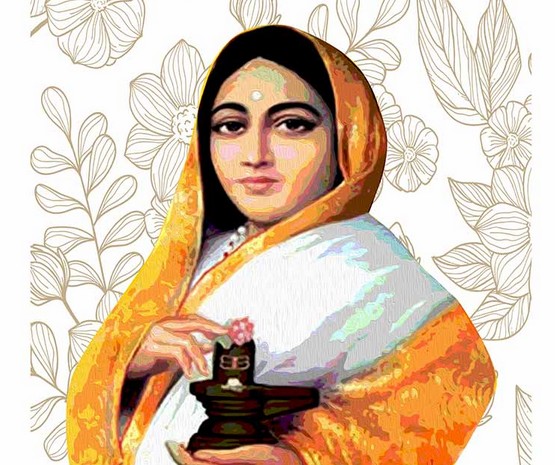Syllabus
GS 1: Modern Indian history from about the middle of the eighteenth century until the present- significant events, personalities, issues.
Context: The Ministry of Culture, Government of India, in collaboration with the Government of Madhya Pradesh, commemorated the 300th birth anniversary of Lokmata Ahilyabai Holkar.
More on the News
- The event was held on 31st May 2025 at Jamburi Maidan, Bhopal.
- A Mahila Sashaktikaran Maha Sammelan (women empowerment programme) was organised at Jamboori Maidan in Bhopal on the occasion.
Key Highlights of the Event:
- Release of a ‘Commemorative Coin and Stamp’ in honour of Lokmata Ahilyabai Holkar’s 300th birth anniversary.

- Display of an exhibition that chronicles her remarkable life, works, and contributions to Indian society and culture.
- Cultural presentations reflecting the ethos and values upheld by Lokmata Ahilyabai Holkar throughout her life.
Maharani Ahilyabai Holkar
- She was born on 31 May 1725 in Chondi village, Jamkhed, Ahmednagar (present-day Maharashtra).
- Her father, Mankoji Rao Shinde, was the Patil (village headman).
- Despite the norm of the time, where women did not receive formal education, her father taught her to read and write.
Marriage and Entry into the Holkar Dynasty
- In a chance encounter, Malhar Rao Holkar, a Maratha commander, saw 8-year-old Ahilyabai at a temple and was impressed by her devotion and character.
- He arranged Ahilyabai’s marriage to his son, Khanderao Holkar, in 1733.
Personal Tragedies
- Khanderao Holkar was killed in the Battle of Kumbher in 1754.
- Her mentally unwell son Malerao died of illness in 1767, thus she took over the reins of the Holkar empire.
- Despite societal norms, Ahilyabai arranged her daughter’s marriage to Yashwantrao, a brave but poor man, after he defeated a group of dacoits.
Rise to Power
- After the death of her father-in-law, Malhar Rao Holkar, in 1766, Ahilyabai was crowned Queen of the Malwa Kingdom in 1767.
- She moved the capital to Maheshwar, located on the banks of the Narmada River, south of Indore.
- Appointed Tukojirao Holkar as the Chief of Army.
Governance and Military Leadership
- She took active steps to defend her kingdom from invading forces.
- She personally led armies into battle when required.
- She was famously known for her just, effective, and benevolent rule.
- Ahilyabai also established a textile industry in Maheshwar, which today is very famous for its Maheshwari sarees.
Cultural and Religious Contributions
- She was a Shaivite, a follower of the Hindu tradition of worshiping Shiva.
- Commissioned the construction of hundreds of temples and Dharmashalas (rest houses) across India.
- Remembered as a pioneer in temple restoration and development.
- Her most notable contribution was the renovation of the famous Kashi Vishwanath Temple in 1780.
- In Jawaharlal Nehru’s book Discovery of India, he defines Aai as a remarkable woman.
- Her throne survives today as a simple low-lying wooden chair with a silk canopy inside the Maheshwar Fort.

